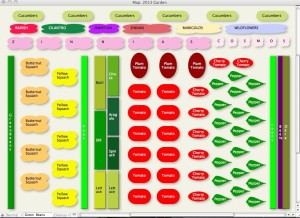First of all, let me say that I’ve always been one to pick the wrong battle. To hold my tongue until it finds escape when I’ve let down my guard. Secondly, I’ve apologized to the injured party three times (though no acknowledgement has been made by them).
Here’s the situation: A members only writers’ site to post stories, poems, along with a forum to discuss writing matters and posting etiquette and news of the literary world. The site, though by invitation only, has been ongoing for about five years, expanded to just under 5,000 members, with about 100-250 currently active. The site, however private to post to, is open to viewing by the public.
Since the ultimate purpose is to share their work, writers often post a story and post links to it using other social networking platforms such as Facebook, twitter, etc. Primary reason is to share–as we all understand the need for an audience or else it’s like writing in your locked diary–and links to the piece will bring readers outside of the site’s circle, perhaps even encouraging them–if they’re writers–to request an invitation to join. These readings are counted and show up as a number of “Views.” Views don’t really tell you if people have actually read the item; I’ve clicked on posted stories intrigued by the titles or opening lines only to find that I do not have time to read a longer story, that it’s poetry which really needs to drag me in immediately or I’m outta there, that it’s politically themed or a genre that I’m not taken by, or that the opening lines were the only thing good about the piece. Still, that quick click and click out count as a view.
There are other elements of acknowledging a posted piece: that of the star or favorite (again, a click that shows up in an accumulated counting–though you can click again to remove); and the best of all (in my mind), leaving a comment of either appreciation of the work or suggestion, anything that you feel the work has brought up to you. Each member feels differently about the numbers (views/stars/comments), some completely ambivalent and some desperately absorbed with them. Me, I care, but it’s not what instigated my action to call out a particular story that suddenly was off the charts on the views.
6,000 views in less than a couple of days. Only a single story, by a well known writer, surpassed that number of views and it took years of remaining onsite. All others in the 1000-4000 range had also been there for years. The average immediate response to a story, within a week’s time is under 200. This story had 0 stars and only about 6 comments. But 6,000 views!
Obviously something was amiss–or appeared to be and was noticed by those members who had seen strange things happen via a quirk of algorithm, by trolling or spamming, or by clever manipulation. When the first mention was made of the oddity here I, like a fool, chimed in.
Here’s where it gets exciting; all hell broke loose. From my high horse, determined to defend the integrity of the site, I was my passive/aggressive self in my sermonizing. By implying that the numbers were false, I of course was insinuating that the writer had manipulated the system. He insisted they were genuine, I still doubted. He contacted me via private message where I stated that I felt it was a discredit to him and his integrity if he was indeed abusing a crack in the system since this numerical standing placed him at the top of the top ten list and kicked off someone else’s work by doing so. From there, he took an image of our private mail, posted it online (along with my name) and tweeted a link to it. He personally called me rude, unkind, and insulting. His friends called me much worse.
Then as it turned out–he didn’t manipulate numbers; the site administrator confirmed that they all came in from a link posted on an unrelated site of which the writer was a member. Indeed, it was not his fault that 6000 people clicked the link to “read” his story.
I apologized again. But here’s the kink: the link was “I don’t know what this is, but it made me laugh and that’s enough.”
Wouldn’t you click on that?
But here’s me again, being a nasty picky purist, still feeling that the system as it was meant to work, has been hijacked–innocently–but its meaning indeed has changed completely. That single story posting is being held at the same standards as the thousands of other stories and poems there, but not under the same method.
I realize that I am seeing the scenario and the site from my own experience with it and with my own expectations of it; everyone uses it differently. Some use it in lieu of their own weblog. One has formed groups within the site to use as a personal filing by theme. Most are trying to catch the eye of editors. Many, in fact, are ecstatic that the site has had that much interest and thrilled to think of the post going viral (and, with the hope that theirs will too, I’m sure). But gee, somehow, I’m still self-righteously feeling that views aren’t reads and that somehow the value of the site and its intent has been damaged just a tad bit by this occurrence.
Note that while the incident may be known and recognizable to some, I have not and never did post names or links, nor call anyone names or use vulgarity. I’ve learned more from this and post this as a memo to myself as well as making a statement on the transparency of the internet. Private only means if both or all parties are trustworthy and professional. Online forums and commentary at social networking sites like Facebook or twitter or the like encourage an immediate reaction, often to the statement of a stranger, sans helpful hints like eye contact and body language that give one pause.
There are fantabulous things about the technology of the net but problems will arise as well. We learn as we go. Then again, I’ve always been one to pick the wrong time to mount my steed and go charging into the night. Let’s hope next time I can’t get my foot into the stirrup.



 The Lost Children: A Charity Anthology
The Lost Children: A Charity Anthology